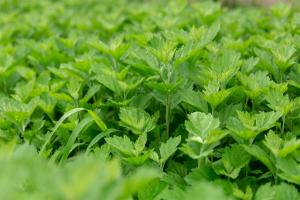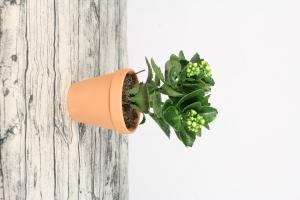Can I Use Stagnant Water on Plants?
Stagnant water refers to still or standing water that has not flown or moved in a while. Many people often wonder if they can use this type of water to irrigate their plants. In most cases, stagnant water does more harm than good to your plants. Below are some reasons why.
Stagnant Water Harbors Bacteria
Stagnant water is a perfect breeding ground for harmful bacteria, algae, and other microorganisms that can harm your plants. When you use stagnant water to irrigate your plants, you run the risk of introducing these harmful organisms to the soil, which can lead to root rot, yellowing leaves, and other plant diseases. These organisms consume oxygen in the water, which can negatively affect the plant's ability to absorb water and nutrients.
Stagnant Water Contains Chemicals
Stagnant water often contains large amounts of chemicals such as pesticides, herbicides, and fertilizers. When you use this water to irrigate your plants, you introduce these chemicals to the soil and potentially to the plant. These chemicals can alter the pH of the soil, leading to nutrient deficiencies in the plant, and ultimately causing it to wither and die. Furthermore, some chemicals in stagnant water are toxic and can lead to soil pollution, which can also be harmful to other plants, animals, and human beings.
Stagnant Water Reduces Oxygen Availability
Stagnant water has a low oxygen content. When the roots of the plants absorb stagnant water, the oxygen that the roots need to function might not be enough. The result is that the roots become oxygen-starved and may start to die as a result. Lack of oxygen also leads to anaerobic conditions in the plant's soil, which can result in the production of toxic substances such as ammonia, which can be toxic to the plant.
Conclusion
In conclusion, using stagnant water to irrigate your plants is not recommended. The risks that come with stagnant water outweigh any potential benefits. Instead of using stagnant water, it is best to use fresh, clean, and oxygen-rich water to irrigate plants. You can collect and store rainwater, which is an excellent source of clean and fresh water for plants. Alternatively, you can use tap water that is free from chemicals like chlorine, or you can filter your tap water before using it to irrigate your plants. By taking these simple steps, you can ensure that your plants are healthy and strong and that they receive all the water and nutrients they need to thrive.

 how many times do yo...
how many times do yo... how many planted tre...
how many planted tre... how many pine trees ...
how many pine trees ... how many pecan trees...
how many pecan trees... how many plants comp...
how many plants comp... how many plants can ...
how many plants can ... how many plants and ...
how many plants and ... how many pepper plan...
how many pepper plan...
































